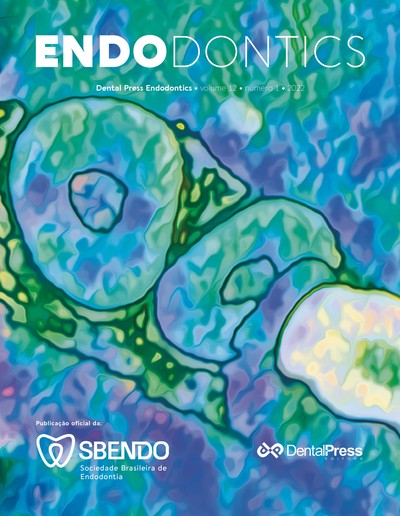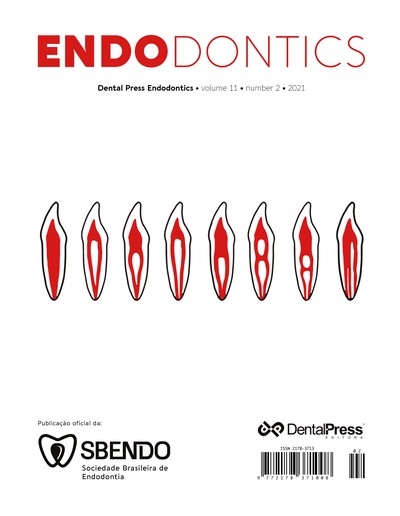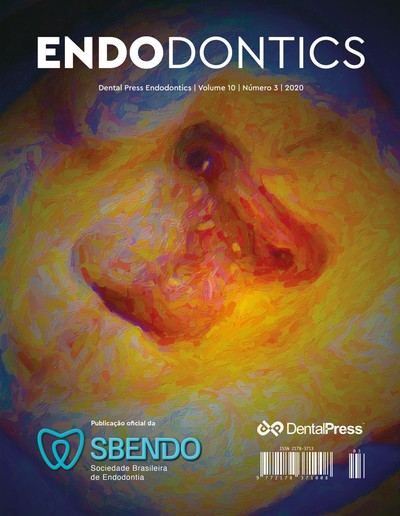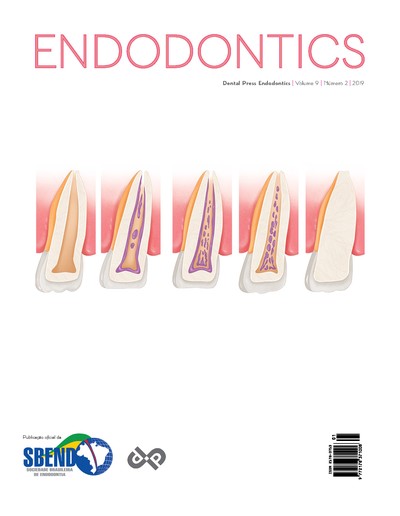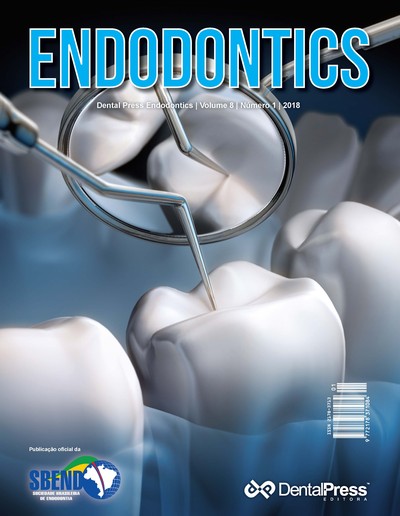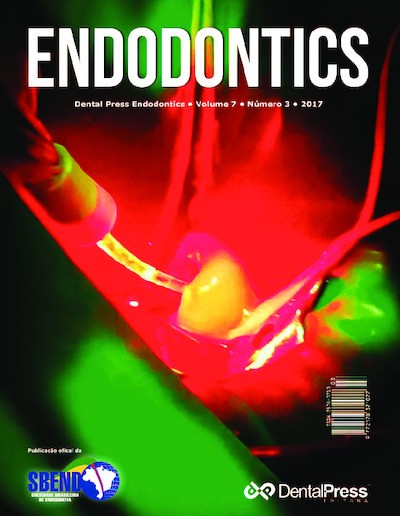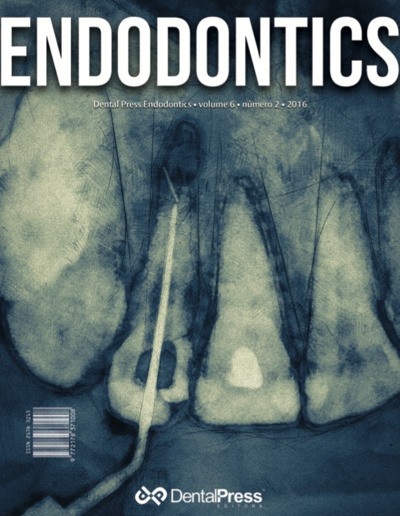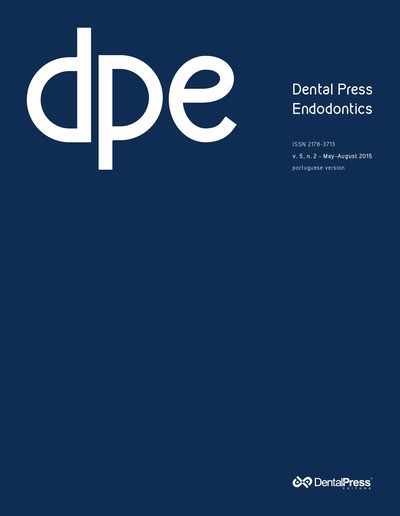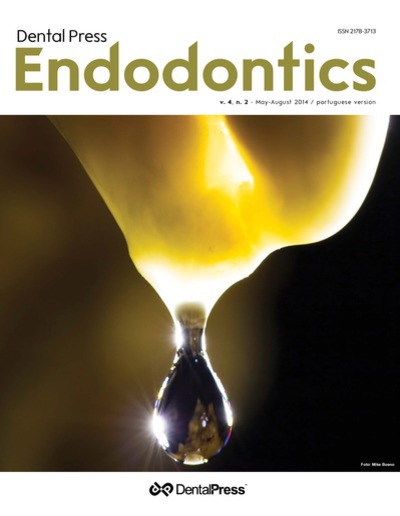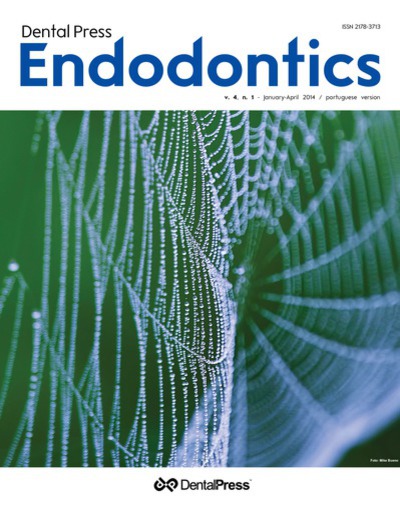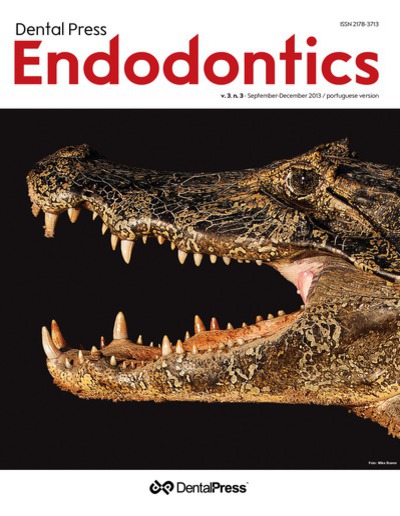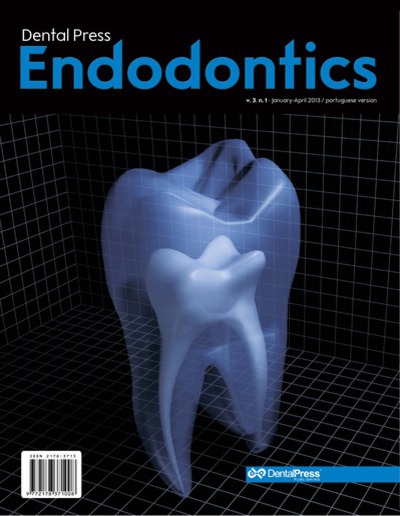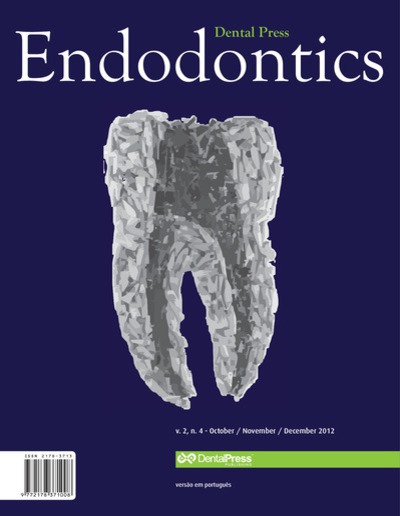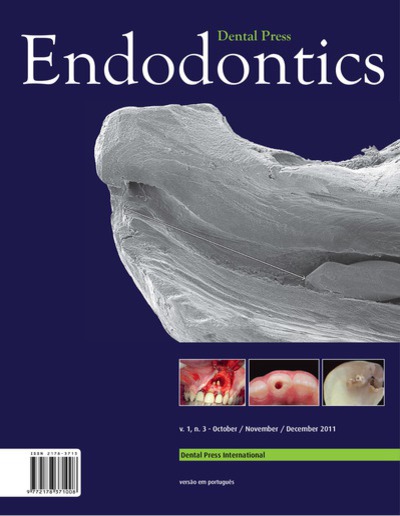
In vitro evaluation of coronal leakage of different sealers in complex cavities
Mauro Henrique Chagas e Silva, Luciana Andrea Salvio, Carolina Oliveira de Lima, Mariane Floriano Lopes Santos Lacerda, Celso Neiva Campos
Objective: To evaluate in vitro the microleakage in complex cavities sealed with temporary restorative materials (TRM). Methods: The cavities were prepared in 60 maxillary premolars extracted from human beings, and the specimens were divided into 3 groups: 1- Intermediate Restorative Material (IRM); 2- Coltosol; 3- Fill Magic Tempo. Three teeth served as negative control and had no cavities prepared. Before sealing the cavities, a collagen sponge was left within the pulp chamber for evaluation of dye penetration. Ten teeth in each group were not submitted to the action of thermal cycling and occlusal mechanical force, while another 10 teeth were submitted to these actions. The sample was immersed in Rhodamine B dye at 0.5%, 37°C for 7 days. Results: All the teeth (100%), except for the negative controls, presented dye infiltration. All teeth sealed with Coltosol (100%) fractured after mechanical testing, while those with IRM and Fill Magic Tempo remained macroscopically intact. The action of thermal and mechanical stresses, or not, with regard to dye penetration. Conclusion: None of tested materials prevented dye infiltration. Coltosol should not be used as TRM in complex cavities due to its low resistance to occlusal mechanical force.
Keywords: Dental materials. Mechanical processes. Dental leakage. 1 Specialist
How to cite: Chagas e Silva MH, Salvio LA, Lima CO, Lacerda MFLS, Campos CN. In vitro evaluation of coronal leakage of different sealers in complex cavities. Dental Press Endod. 2016 May-Aug;6(2):16-20. DOI: http://dx.doi.org/10.14436/2358-2545.6.2.016-020.oar
Wednesday, February 05, 2025 06:00
